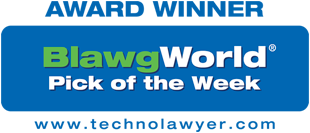 A survey released yesterday on the business of law and legal technology finds that competition for legal services remains high, demand remains relatively flat, and law firms are feeling pressure to lower prices and enhance operational efficiency. But what caught my eye in the survey was the question, “Which technologies provide law firms with the greatest overall effectiveness?”
A survey released yesterday on the business of law and legal technology finds that competition for legal services remains high, demand remains relatively flat, and law firms are feeling pressure to lower prices and enhance operational efficiency. But what caught my eye in the survey was the question, “Which technologies provide law firms with the greatest overall effectiveness?”
The 2017 Aderant Business of Law and Legal Technology Survey, conducted by Aderant, a provider of business management software for lawyers, surveyed 112 respondents in U.S. firms, most of whom are in financial, accounting or C-suite roles. Most of the respondents said that the performance of their firm this year is about the same as last year, and that the top challenges they face are:
- Pricing pressure.
- Improving operational efficiency.
- Winning new business.
- Growing more business from existing customers.
- Improving law firm agility and adaptability.
So if a firm is striving to control prices and improve operational efficiency, technology has to be a major part of  the answer. But which technology?
the answer. But which technology?
As I already noted, that was the question put to the respondents. Their top 10:
- Document management, 66%.
- Financial/ERP, 52%.
- Business intelligence, 49%.
- Matter pricing and planning, 47%.
- Case management, 47%.
- Project management, 37%.
- CRM, 33%.
- Document assembly, 26%.
- E-discovery, 23%.
- Other, 4%.
Another question reframed the issue away from specific technologies and towards types of technologies. It asked, “Which technology concepts have the potential to drive the most efficiency?” Here were the answers:
- Automating manual tasks, 74%.
- Analytics and business intelligence, 60%.
- Integration of systems, 55%.
- Collaborative tools, 49%.
- Mobile access, 46%.
- Cloud-based solutions, 21%.
- Unsure, 10%.
The final technology question turned skyward and asked, “What is preventing the adoption of cloud technologies?” Not surprisingly, the leading answer was cybersecurity:
- Cybersecurity, 73%.
- Client concerns, 43%.
- Integration with other systems, 43%.
- Data ownership, 39%.
- Compliance, 38%.
- Cost, 35%.
- Change management, 33%.
- Physical location, 25%.
- Speed of service, 24%.
- Functionality, 23%.
- Other, 9%.
The full survey covers a broader range of topics, including alternative fees, billing and invoicing, competition and collaboration. You can download it for free — and you don’t even have to fill out a registration form.
 Robert Ambrogi Blog
Robert Ambrogi Blog